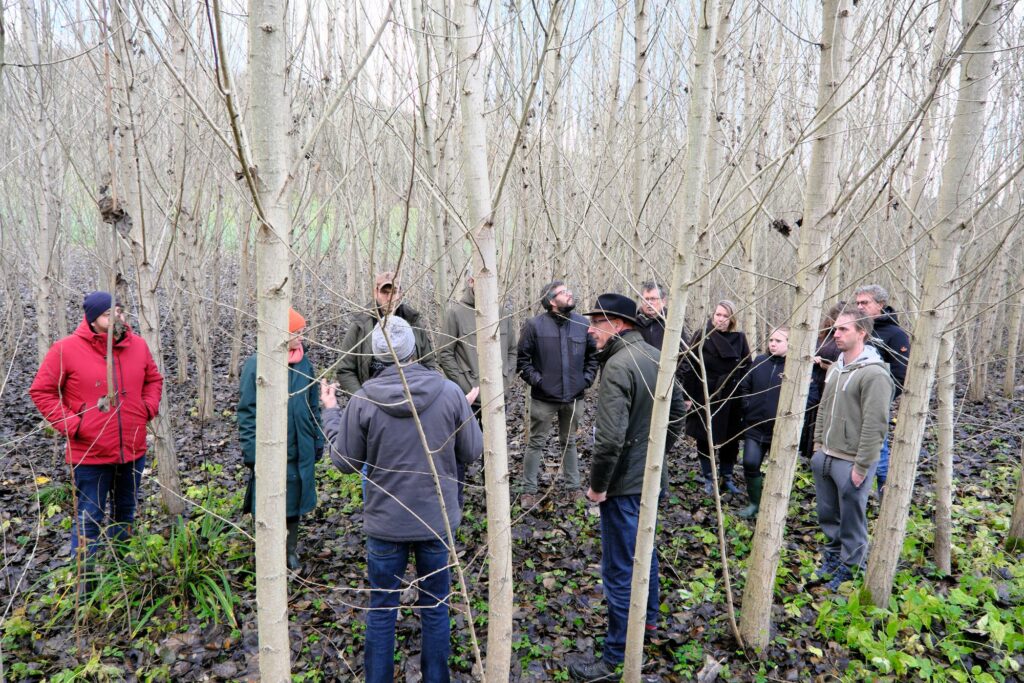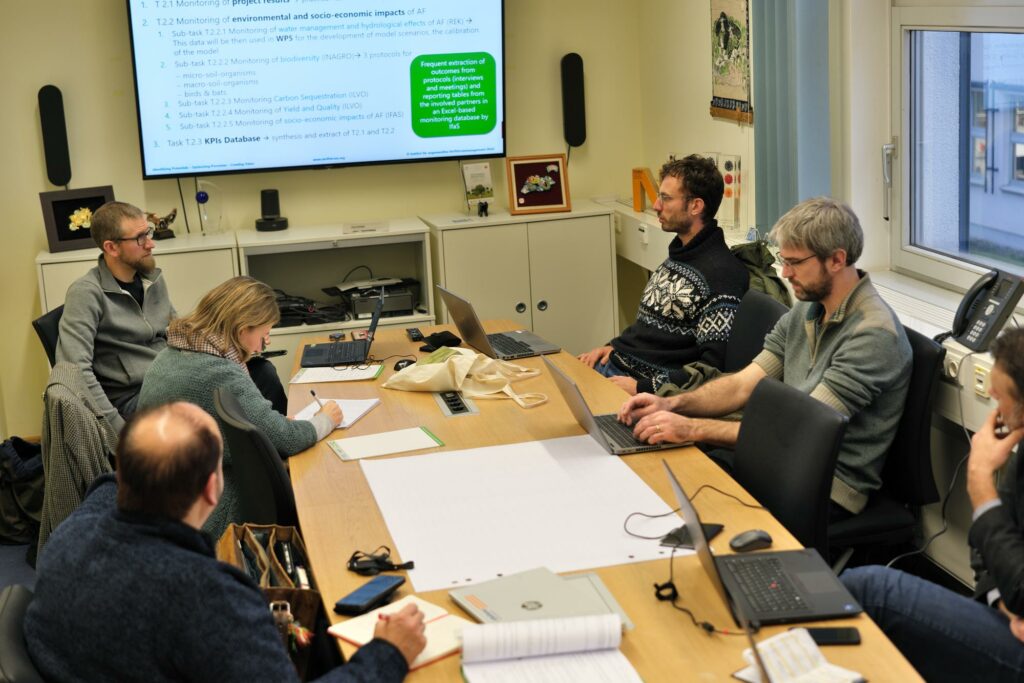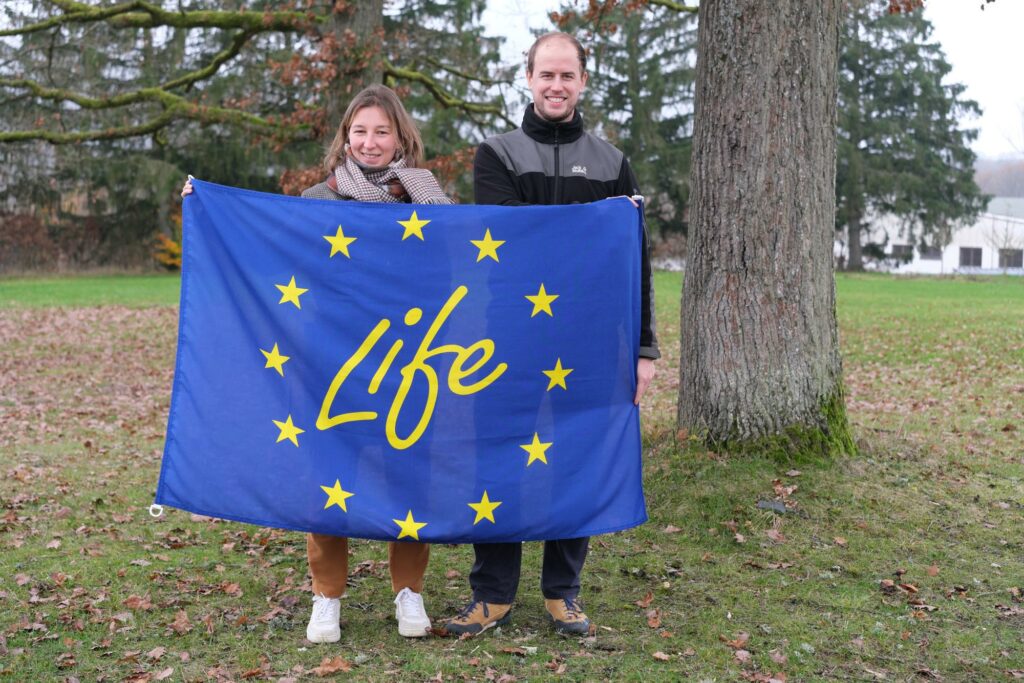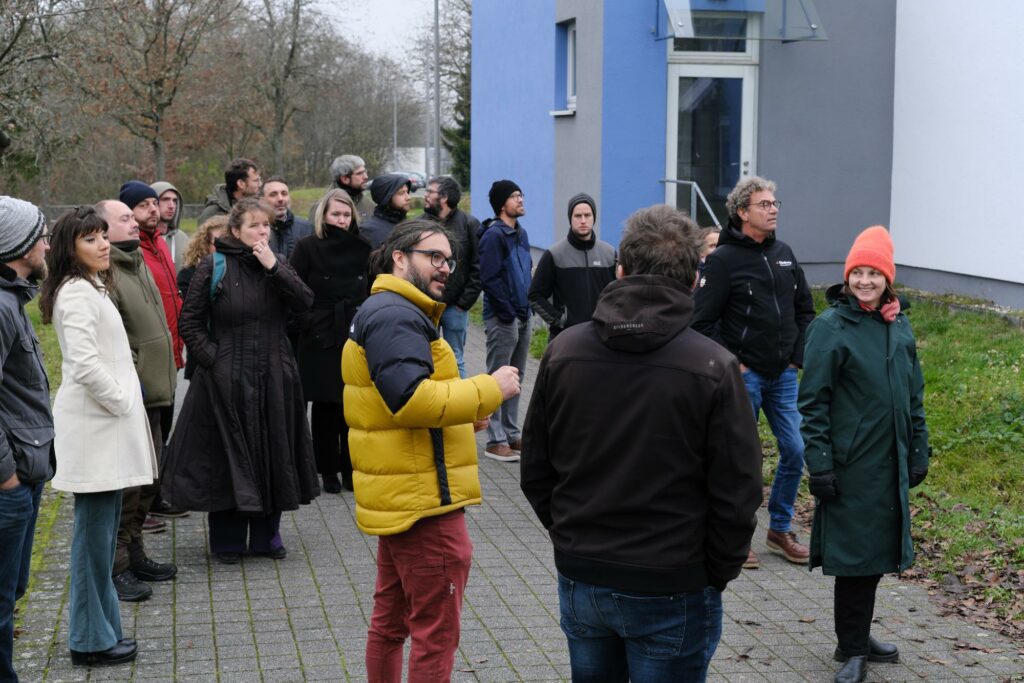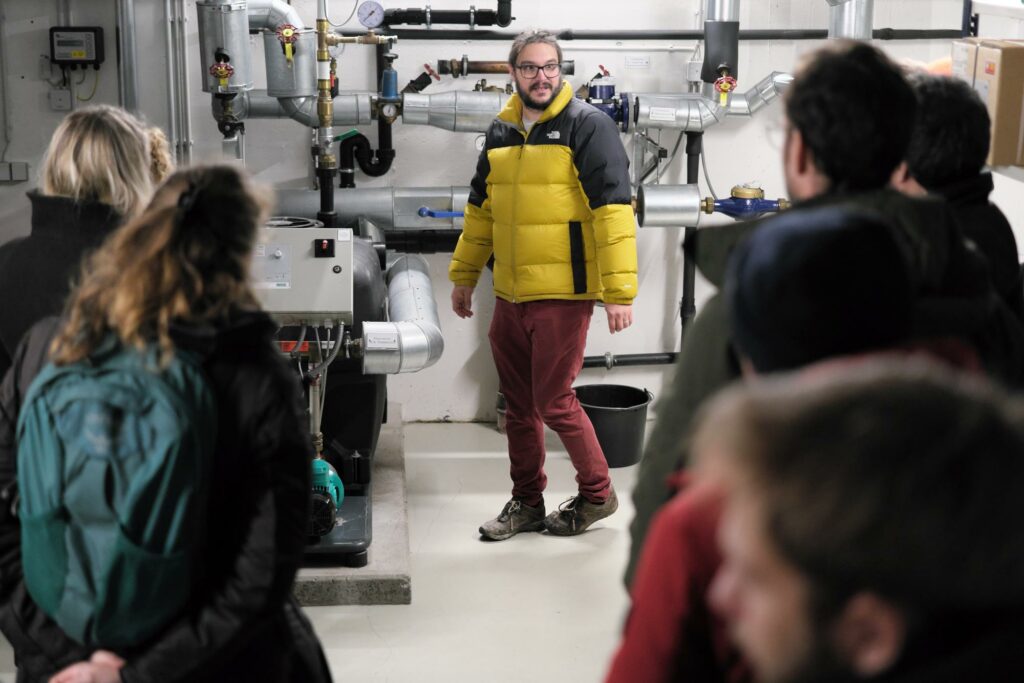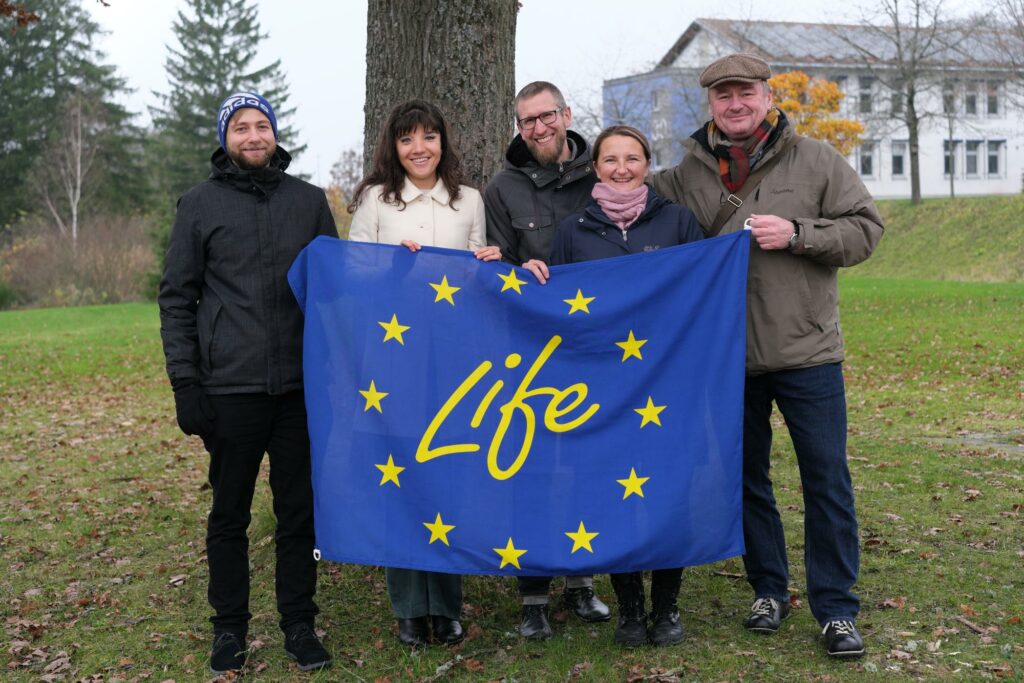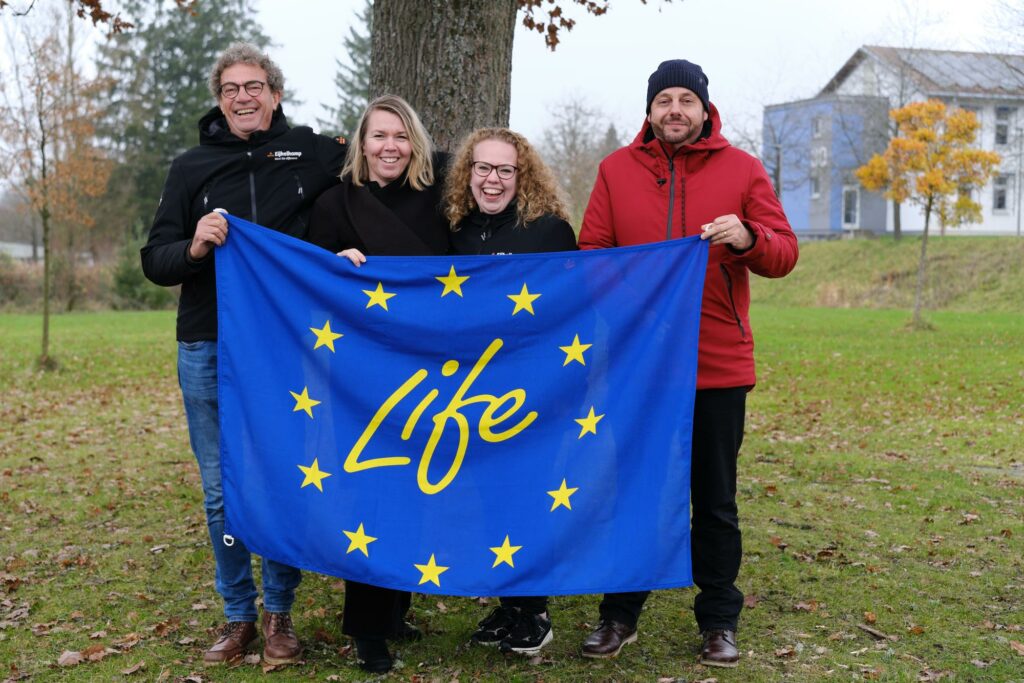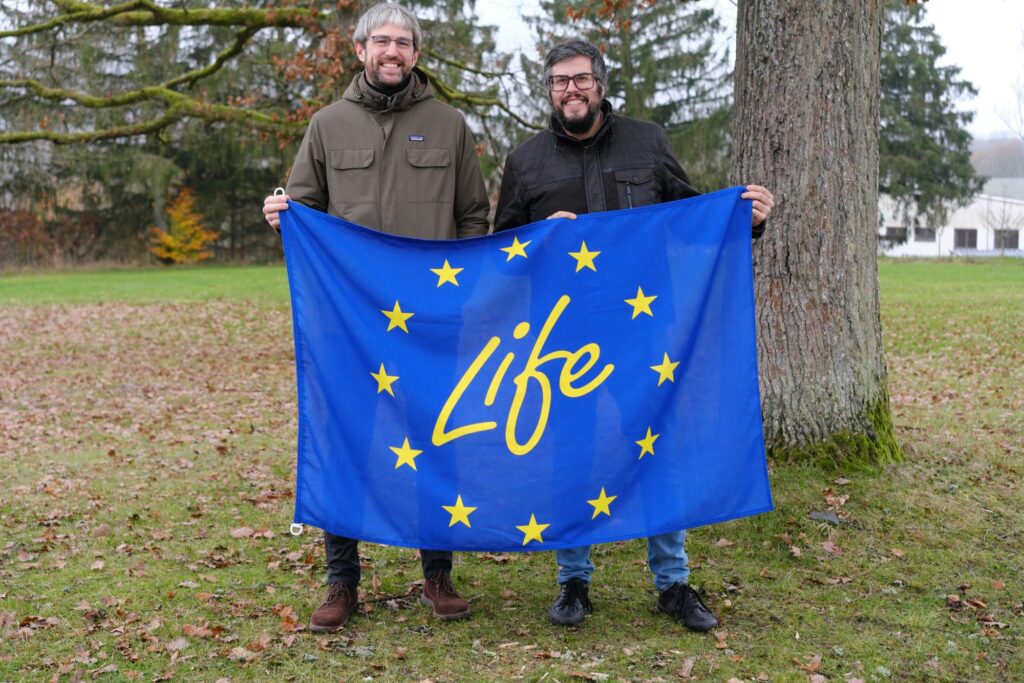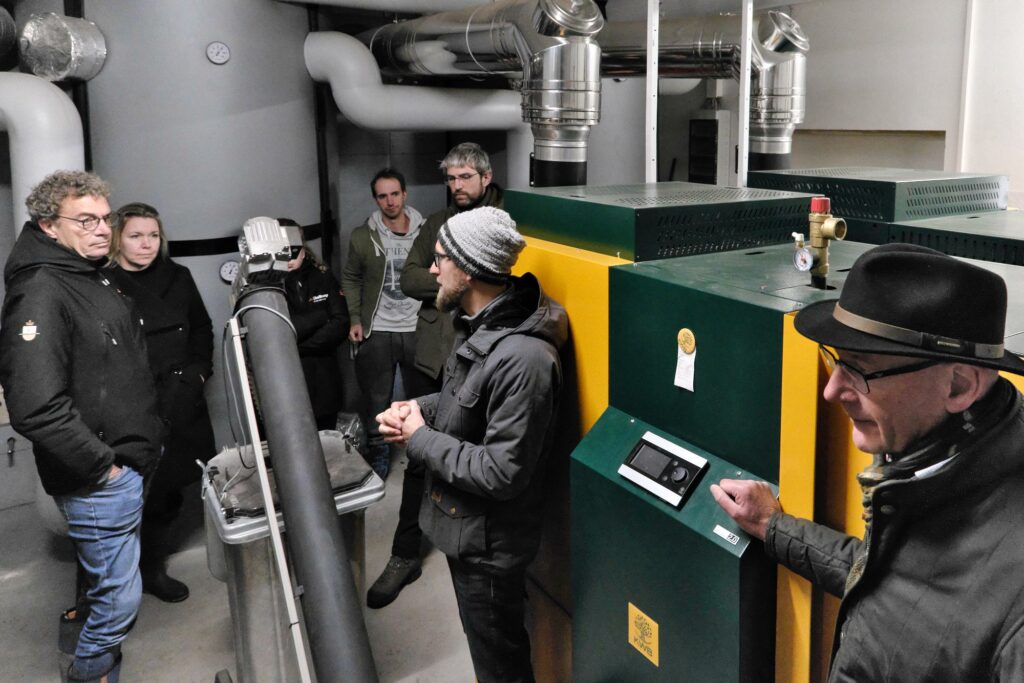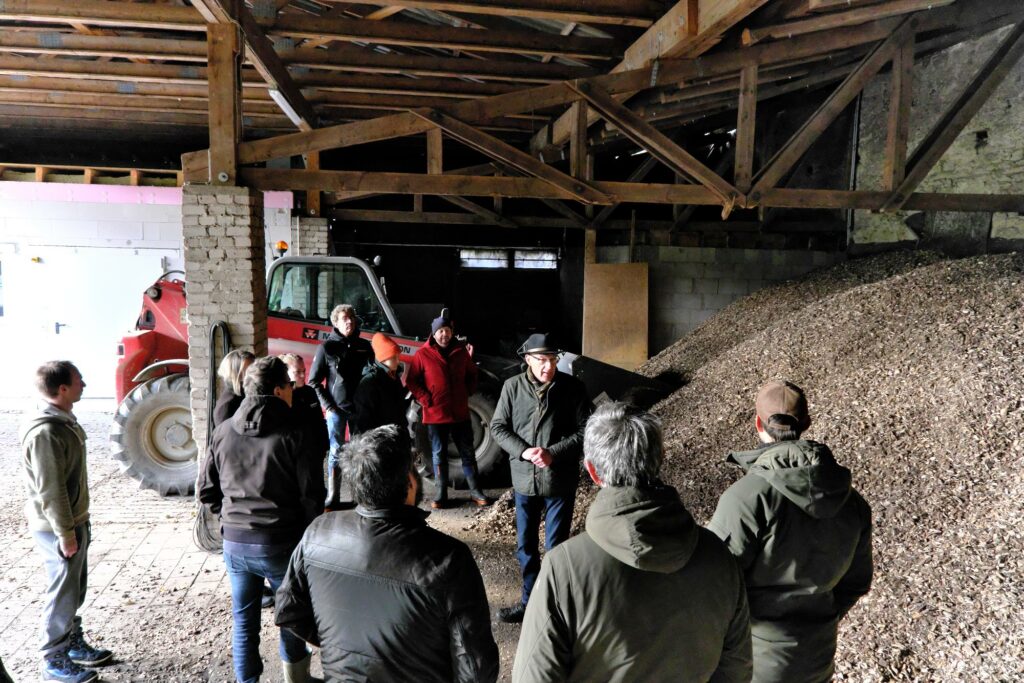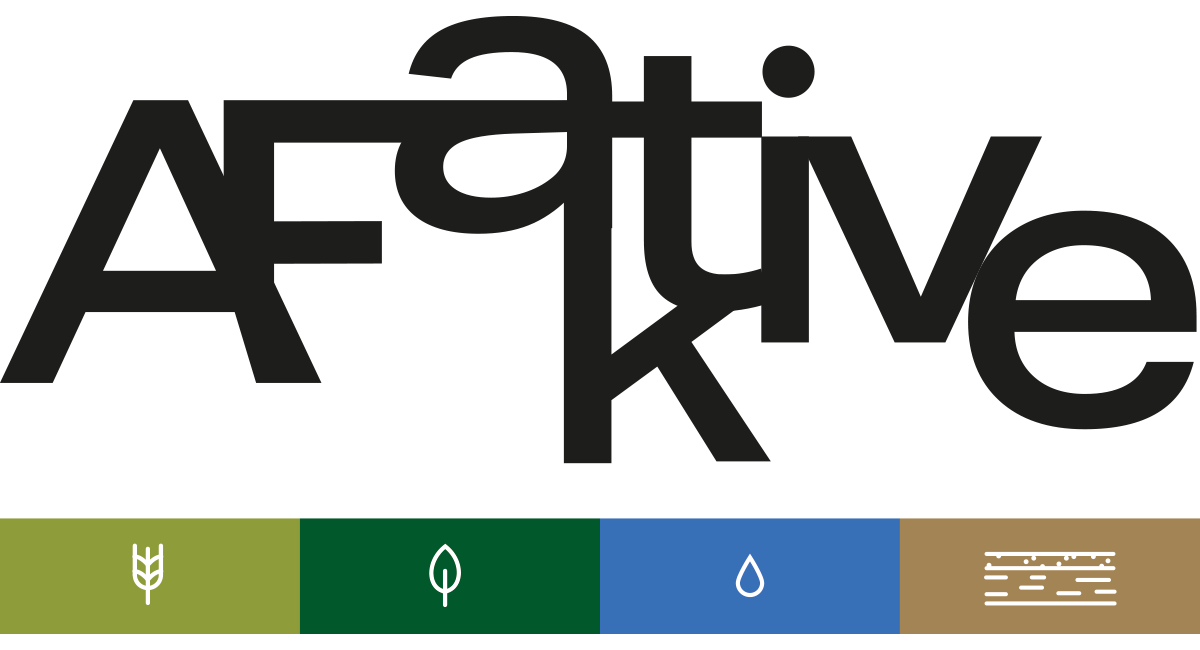At the end of November, IfaS welcomed the partners of the AFaktive project for the kick-off event at the Environmental Campus Birkenfeld
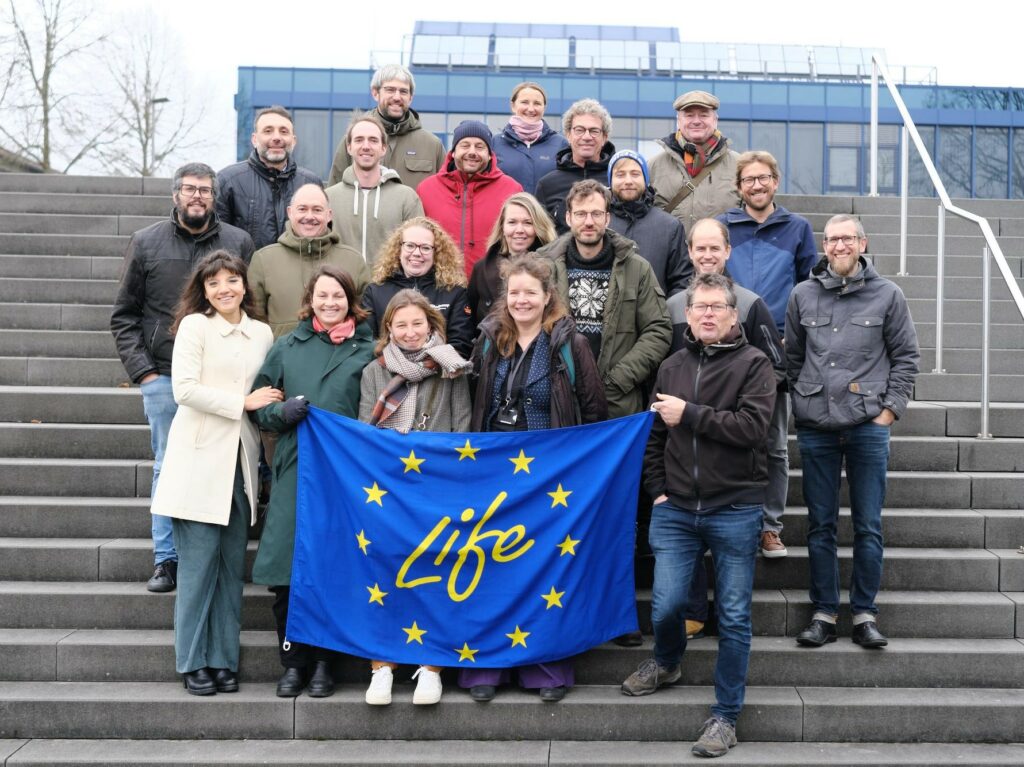
Various agroforestry enthusiasts from Belgium, the Netherlands and Germany have joined to form a consortium and are receiving EU funding from the LIFE programme. The five-year project “AFaktive – Agroforestry as a key to improving water management and adaptation to extreme weather events” will implement urgently needed practical projects to test agroforestry systems in agriculture to improve water management. Following the project launch on 1 October, 21 experts met for the first face-to-face event from 22 to 24 November at the Environmental Campus Birkenfeld.
The project team at IfaS, led by project manager Jörg Böhmer, organised the kick-off meeting as project coordinator. The aim was to set the course for the practical start via a common understanding of the cooperative approach of the (practice) partners. Agroforestry is to be developed as a practical tool for improving the water balance of the cultivated landscape in order to mitigate increasingly frequent weather extremes such as drought and heavy rainfall and effectively reduce their hazard potential.
On Wednesday morning, a group met at the Ingweiler Hof to take a look at a production-integrated agricultural wood area for flood retention to protect the village of Reipoltskirchen. On this occasion, the centre manager Axel Schönbeck, a pioneer of agricultural timber cultivation in Rhineland-Palatinate, explained the value chain of this “multi-utilisation concept” from the land to the woodchippings to the provision of heat for a retirement home. This also showed the smooth transition from agroforestry systems to extensive coppice cultures with fast-growing poplars. Especially in very narrow valley locations, such as here in a low mountain range, a second utilisation on the narrow and small arable land is not worthwhile.
The many intensive discussions over three days gave a first impression of how differently agroforestry is implemented in the three countries. At the same time, the opportunities for joint learning, development and ultimately production of a practicable and multifunctional tool to strengthen the water balance were made visible. With this motivation, all partners returned home satisfied; a successful start for this international EU project.

